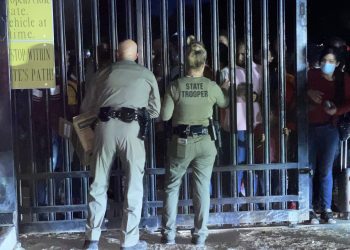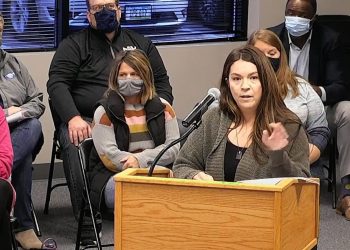During the last legislative session, the legislature passed, and Governor Kim Reynolds signed a historic occupational licensing reform measure. The law allows for universal recognition of out-of-state licenses, waives licensing fees for low-income individuals, and establishes a standard for a fairer review process if a license is denied based on past criminal convictions. Policymakers have an opportunity to build upon the historic occupational licensing reforms by requiring a review process for licenses and boards.
Governor Reynolds during her Condition of the State address not only stated that Iowa “has the most flexible licensing reciprocity and recognition laws in the nation,” but the reform makes the state “open for business.” Universal recognition helps to eliminate restrictive barriers to employment and it also makes it easier for people to relocate to Iowa. This only makes sense as Iowa is attempting to attract more skilled workers.
Reform should not stop at universal recognition, but also include a regular review process for licenses and boards. Greater transparency is needed to review the numerous licenses and boards in order to ensure that they are not restricting the ability for an individual to earn a living.
In reviewing licenses and boards policymakers should consider both sunrise and sunset measures. Existing licenses and boards should undergo a regular review process and be subject to a sunset provision that would require the legislature to renew after the review process. Any new license or board should also be subject to a sunrise provision, which would require a review to make sure that the proposed license or board is needed and does not restrict occupational freedom.
Iowa should consider the occupational licensure reforms that their Nebraska neighbors have implemented. Nebraska’s reform does not suggest that all licenses should be repealed, nor does it mean recommending a “free-for-all” economy. The Nebraska model requires five-year sunset reviews of all occupational licenses (20 percent each year, rotating) by the appropriate legislative committees.
The legislative committees are tasked with reviewing occupational regulations and issuing a report that either “recommends ending, modifying, or maintain(ing) these regulations.” The review “must include information on the number of licenses issued or denied by the board being reviewed, an examination of the basic assumptions underlying the board’s powers, and a comparison of what other states do in similar occupations.”
The Nebraska legislation declares that an individual’s right to pursue work is a “fundamental right” and that the “state should use the least restrictive means to protect the public when regulating an occupation.”
Nebraska’s licensing reform law is producing results. Two years into the Nebraska review process, the reports have resulted in a bill to eliminate one antiquated license and provide reference points for legislators when boards or interests come to them to request a change in licensing for their industry.
Requiring a review process for occupational licensing and boards should not be controversial. A review process will bring greater transparency and help to ensure that economic opportunities are not being restricted by protective licensure and board rules.
Governor Reynolds is working hard to grow Iowa’s economy and she is making this a priority. By following fiscal conservatism, lowering tax rates, and reducing barriers to occupational freedom, Iowa is becoming more economically competitive. Implementing a review process for licenses and boards will not only build on making Iowa more competitive, but it is a good government reform measure.

















